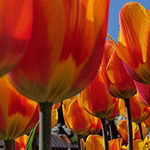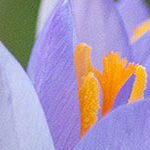Artificial Intelligence has been chique in the photography world for quite some time now. Many smartphone cameras have already adopted it, enabling them to automatically analyze images and adjust the settings accordingly. While bigger cameras have yet to fully adopt AI (at least for now), many post-processing apps already boast their AI features. Such features are designed to make editing workflows more efficient, but many photographers use it to salvage poorly taken images. Photographer Thomas Heaton feels that this negatively impacts how people practice landscape photography. More on this take in today’s video:
With AI, you can easily replace skies, add in mountains that don’t exist, create blazing clouds, revamp colors and perform a myriad more tasks to spruce up your images. While a professional photographer wouldn’t do it (except for fun), beginners are at a greater risk of being trapped. They are also more likely to snap a poor image and being happy with it, because they know that their AI software will fix it for them. One’s willingness to learn and improve can greatly deteriorate with such an attitude.
“It kind of creates this false, idealistic vision of the world. And the world isn’t blazing skies over mountains all the time.”
When such unrealistic edits are made and shared on social media without disclosure, the resulting images can spread false expectations and perpetuate problems in online photography communities. This risks the fundamental integrity of photographers who care for the art. AI editing is useful in a pinch, or when the results are not terribly noticeable. But over-reliance is an issue.
Heaton also shares an interesting thought on addiction to AI editing. Since the software is so “good” at editing, users may develop a dependency on it. This is wrong. In fact, it’s necessary to realize that such software can act as a barrier and prevent you from growing as a photographer.
Have you used AI-powered photo editing software? Let us know how your experience has been.
Like This Article?
Don't Miss The Next One!
Join over 100,000 photographers of all experience levels who receive our free photography tips and articles to stay current:






Leave a Reply